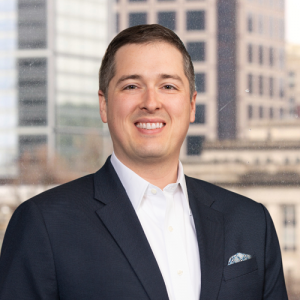Earlier this week, the Department of Justice (“DOJ”) announced that the United States recovered over $5.6 billion from False Claims Act (“FCA”) cases in the federal fiscal year 2021, “the second largest annual total in False Claims Act history” and more than doubling the FCA recoveries for the DOJ from fiscal year 2020. Of that, $5 billion relates to health care fraud involving drug and medical device manufacturers, managed care providers, hospitals, pharmacies, hospice organizations, laboratories and physicians. That figure does not include even more funds recovered for state Medicaid programs.
Whistleblower cases remain a lucrative recovery tool, accounting for $1.6 billion of the funds collected. Whistleblowers themselves received $237 million in 2021. The DOJ said 598 new qui tam suits were filed in 2021, down 11% from 2020. Because of the detail required to sue under the FCA, most whistleblowers are senior-level employees. “Industry insiders are uniquely positioned to expose fraud and false claims and often risk their careers to bring these schemes to light,” said Acting Assistant Attorney General Brian M. Boynton of the DOJ Civil Division. The DOJ also apparently continues the trend of commencing FCA investigations on its own through data mining and other investigative efforts, without the prior filing of a qui tam action.
Health Care Fraud Actions
Opioids. With opioid abuse remaining a serious problem nationwide, the government targeted opioid-related schemes, finally collecting on settlements announced last year for $600 million from Indivior for their improper marketing of the opioid addiction treatment drug Suboxone; $2.8 billion from Purdue Pharma for its promotion of opioids through, among other tactics, kickbacks to doctors, specialty pharmacies and an electronic health records developer, aimed at increasing prescriptions of its opioid products; and $225 million from individuals in the Sackler family for their approval of “a new marketing program that intensified marketing of OxyContin to extreme, high-volume prescribers.”
Medicare Part C. Medicare Advantage Programs were another target in 2021. Participating private health insurance carriers are paid a capitated amount for each patient enrolled in their plans, rather than receiving payment under the typical fee-for-service model. The capitation amount is determined based on various “risk” factors, and plan enrollees with greater health risks lead to greater payments from Medicare. Consequently, some plans and health care providers are alleged to have manipulated the risk adjustment process by combing patients’ medical records and adding old diagnosis codes to current treatment records, falsely stating the patient is higher risk and thereby inflating payments. The government collected almost $100 million from FCA settlements and judgments and has intervened in two qui tam actions alleging fraudulently inflated payments under Medicare Advantage Plans.
Kickbacks. DOJ recovered $160 million from a diabetic testing supply company that offered free or no cost testing supplies by waiving Medicare co-pays or failing to make reasonable collection efforts. It also recovered from several labs that participated in schemes to provide kickbacks to physicians for referrals for urine drug testing, including $140 million from various health care entities owned by a chiropractor, and $9 million from the chiropractor himself. DOJ also collected $400 million from three generic pharmaceutical manufacturers for their involvement in a conspiracy related to price-fixing and allocation of customers.
Medically Unnecessary Services. DOJ also collected for medically unnecessary physical therapy services and prescribed durable medical equipment, as well as “grossly and materially substandard and/or worthless skilled nursing services”—a continuing focus of the DOJ—and the use of knowingly defective blood coagulation tests, and pacemakers that would have met recall standards if adverse events were accurately reported.
Individual Accountability. Along with the Sackler family settlement mentioned above, individual health care providers have reached settlements between $3–6 million for their role in fraudulent schemes involving medically unnecessary (i.e., cosmetic) vein procedures, excessive and needless urine testing, and kickbacks including cash and food for homeless people in exchange for enrolling in inpatient chemical dependency treatment. These enforcement actions exhibit DOJ’s continued focus on seeking to hold responsible individuals accountable for their roles in perceived corporate misconduct.
COVID-19. Substantial fraud enforcement activity has been announced related to the Paycheck Protection Program, but there has been no news yet on fraudulent activity discovered in relation to Provider Relief Funds received under the CARES Act.
Although the largest recoveries often garner the most media attention, health care providers should understand that the government will pursue enforcement actions against any provider type, regardless of size, if the government believes the allegations warrant such an investigation. Individuals are also not immune to investigation and prosecution. The government has continued its trend of entering into settlements with individuals when the government believes a particular individual, often a senior leader or owner, shares responsibility for the misconduct.
Practical Takeaways
Health care enforcement will continue and will remain a powerful tool for the federal government. Preventing, detecting and responding to compliance issues is key. Now more than ever, an effective compliance program must be nimble and risk assessments must consider new and evolving areas of compliance risk like telehealth, Stark waivers, physician compensation issues, the medical necessity of billed services, appropriate coding for those services, and any regulatory flexibilities existing during the public health emergency.
Proactive compliance programs are an excellent defense and can help identify potential issues early – before they develop into big issues and might implicate the FCA. When significant issues are identified, health care providers need to respond timely, complete a thorough investigation, and, often with help from compliance counsel, determine the best course forward. These actions may include corrective actions like voluntary refunds to the MAC or Medicaid agency, self‑disclosures to OIG, CMS or DOJ, and internal education, auditing and monitoring.
If you have any questions, please contact:
- Heather Mogden at (414) 721-0457 or hmogden@wp.hallrender.com;
- Katherine Kuchan at (414) 721-0479 or kkuchan@wp.hallrender.com;
- Scott Taebel at (414) 721-0445 or staebel@wp.hallrender.com;
- Matt Schappa at (317) 429-3604 or mschappa@wp.hallrender.com;
- Drew Howk at (317) 429-3607 or ahowk@wp.hallrender.com; or
- Your primary Hall Render contact.
Hall Render blog posts and articles are intended for informational purposes only. For ethical reasons, Hall Render attorneys cannot—outside of an attorney-client relationship—answer specific questions that would be legal advice.





